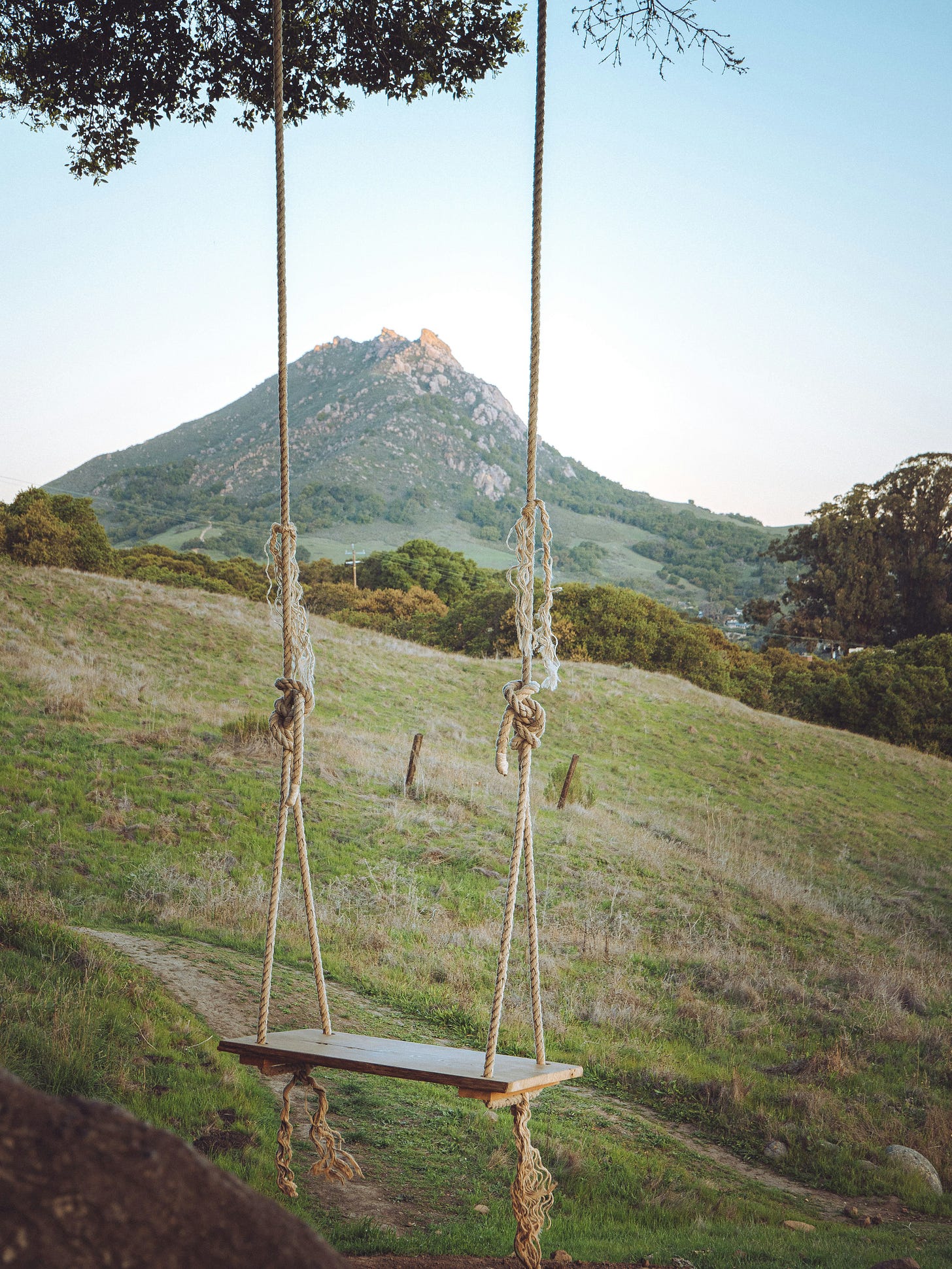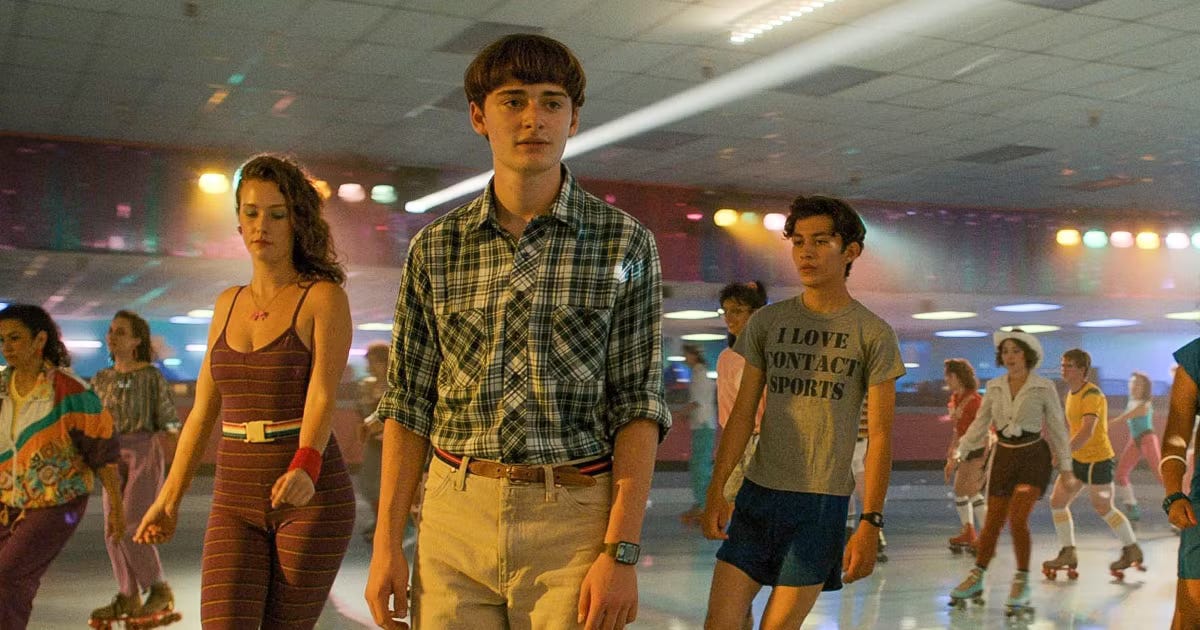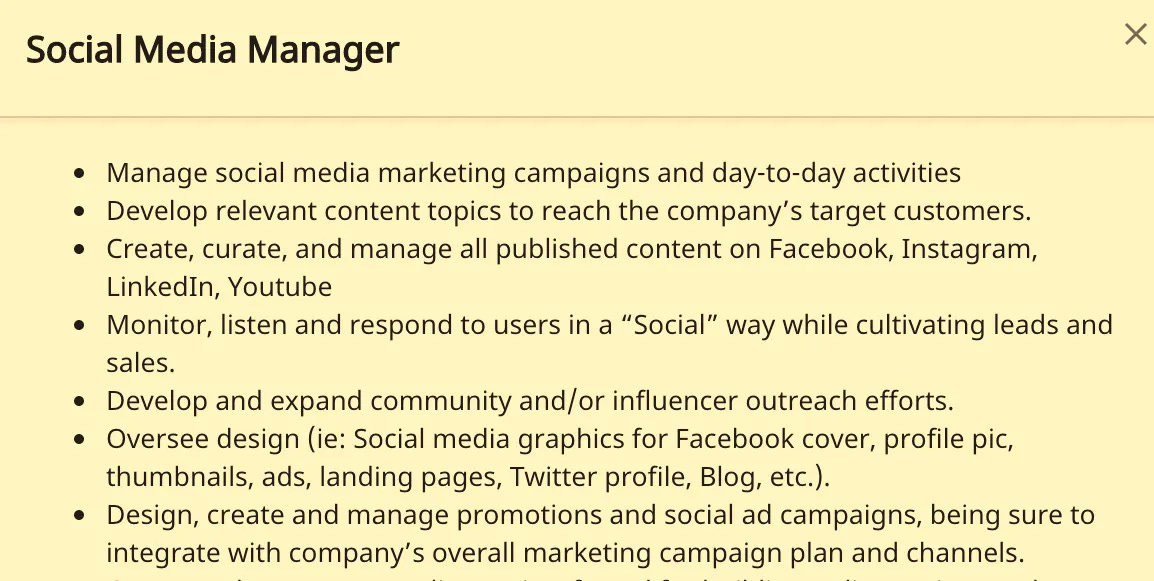Cast your mind back to what adulthood looked like from the vantage point of your childhood.
Can you remember how mundane, boring, pointless so much of the adult experience seemed? It was all suits and ties and Excel sheets and phone calls and offices and impossibly big newspapers—yuck.
Remember how it seemed so contrary to the true purpose of life that you felt in your bones? Long hot summers playing football late into the evening, hanging out on the swings in the park, eating triangular ice lollies, wheelies on your bike, climbing (and falling out of) trees, renting VHS movies from Blockbuster, go-karting, a weekly trip to the sweet shop, and all the other things that contribute to our sentimentality of those formative years?
Childlike Adults
Adults, however, now grasp for their childhood. Nostalgia has become a powerful marketing tool. Consider the following streaming shows: Severance (on Apple TV), Loki (Disney+), and Stranger Things (Netflix) — three very different shows with one similarity: a nostalgic look and feel that evokes the 70s, 80s, and 90s. It’s no coincidence that many of the intended viewers were born in that era—the show makers are using our memories as a hook, a quick and easy route to tap into our emotions.
Additionally, how adults spend their time and money reveals a desire to Avoid Boredom At All Costs, which might as well be the manifesto of childhood everywhere:
The explosion of the global computer games industry to $184 billion in 2024 (more than the combined value of the music and movie industries).1
The average UK household spends £58 per month on subscriptions, including streaming services.2
The number of holidays per person reached an all-time high in 2024 (3.94 holidays per person in the UK).3
In one sense, adults act more like children than they ever have. Just as children used to wish they would never become adults and have to deal with all that responsibility guff, adults now pine for their childhood, spending much of their income on freedom and distraction from the perceived harshness of life.
Grown-up Children
Just as adults increasingly give in to the demands of their inner-child, the daily life of a teenager today is conversely becoming more similar to the life of the average modern adult.
Consider that 90% of UK children own a smartphone by the age of 114. They are spending hours each day on social media, messaging, email. They are curating their own online brand. (Side note, when we speak of ‘branding ourselves’, here’s what that actually means):
Getting branded once involved searing your exposed flesh with a burning hot metal stamper… And after you got burned you were officially brand new—that’s what the term actually means. After getting stamped with a hot iron, you’re now ready for sale. — Ted Gioia
Emails, instant chat, video calls, social media curation, self-branding. These kids are multitasking, producing incredible photos and videos, and learning the art of capturing attention. I don’t know about you, but that sounds a lot like some modern marketing jobs, doesn’t it?
On the flip side, a smartphone gives children easy access to the dark side of the internet, such as violent or sexual imagery that they are simply not prepared for (if anyone can be).
Apple is currently engaged in a $1.2 billion lawsuit, charged with exposing children to harmful content on their gated App Store5. Even if they lose, that’s chump change for the richest company ever to exist. At the same time, Meta recently announced they are removing fact-checking from Facebook and Instagram6. Add to that global news, with even the BBC showing awful, violent imagery and stories on their home page. This is not an online world in which children can thrive.
If you believe tech companies have the motivation to solve these problems and protect children, you are mistaken. If you believe children can handle unfettered access to the internet and all the darkness that lurks beneath that brightly coloured search engine, you are mistaken.
Where am I going with all this? It’s a fair question.
As you may know by now, the Storygram Labs Substack is a space for me to research and write towards one particular goal: to discover ways to encourage and motivate children to enjoy reading. I believe that reading, and especially learning to enjoy it, is an essential gift that we must pass on to the coming generation. Without learning to enjoy reading, children today will be less prepared for the world they are growing up into.
As I have been developing my understanding of the problems and challenges that exist in this space, I’m becoming increasingly convinced that we have been sleep-walking into this crisis. There are many factors, and many steps we need to take, but today I’ll simply say this: that adults need to grow up and take responsibility, and children need to be given their childhood back.
Because as the daily experience of children and adults converges, both can be true: they grow up so fast, and they never grow up at all.
https://mediacat.uk/dentsu-gaming-is-bigger-than-music-and-movies-combined/
https://www.finder.com/uk/banking/subscription-service-statistics
https://www.abta.com/news/number-holidays-taken-person-reaches-new-high-people-seek-getaway-get-together
https://commonslibrary.parliament.uk/research-briefings/cdp-2024-0103/
https://www.nytimes.com/2024/12/08/technology/apple-child-sexual-abuse-material-lawsuit.html
https://www.bbc.co.uk/news/articles/cly74mpy8klo






